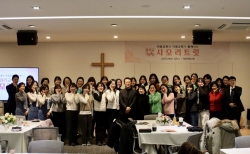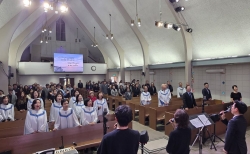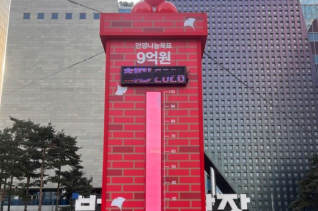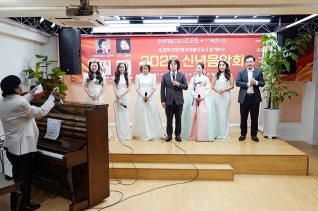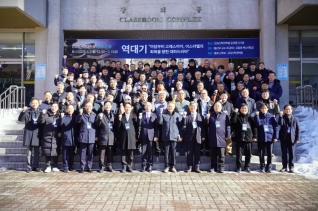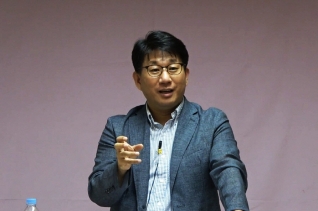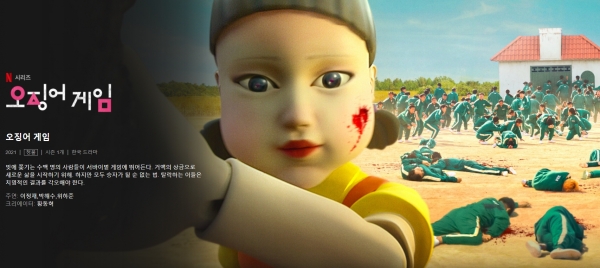
1. Differentiated space by class
There seems to be no disagreement in general that Netflix drama "Squid Game" is an allegory depicting our capitalistic society. The fact that the space of the characters represents their class further clarifies that point. People who step into the game room are divided into four classes roughly. The size of the space which each of these four layers can occupy is different according to the power of each layer.
The participants who enter the game are to live in a fully open, stacked bed. This means that even the area of one single bed is not entirely theirs. They have to eat meals while sitting on the bed and are not even free to use the bathroom freely.
Besides the participants' beds are aligned somewhat in a 'c' shape, which naturally converges energy towards the open side. On this open side, not only annoucements are made and meals are distributed, but also the number of survivors is indicated in order to attract the participants' attention.
The number of survivors eventually means the amount of money they can take. The golden piggy bank hanging from the ceiling instantly visualizes the number of survivors indicated on the electronic display, which in turn encourages their internal desires for money. This leads to fierce fightings that could even trigger slaughter.
Meanwhile, each marshal is assigned with a private bedroom with a toilet. Even though they are regularly taken with roll calls, they seem to have some flexibility in their movements regardless of some limitations. The frontman, who has more authority, has his own luxurious room. He can sit down on a comfortable sofa and check the life and death of those participants on the screen as well.
More interestinly, when the game is not held, the frontman lives in a tiny single room called 'Gosiwon'. The scene showing this narrow room means that even the frontman himself just holds an intermediate power within the hierarchy of power and is not the same as the top predator in the whole food chain. Maybe he could be in the game board as if he were being pushed by someone who holds more authority and power.
The VIPs who are higher than the frontmen own even more private spaces. They enjoy entertainment watching the struggles of the participants in their own comfort zone. 'Mr. Oh Il-nam', who also belongs to the top class, owns not only the game room but also the entire island. The size of the space he owns, the size and facilities of the game rooms he built clearly prove that he has the ultimate power than any others.
Furthermor on the night of slaughter among the participants, 'Mr. Oh Il-nam' goes up to find the highest place. Although one obsessed with extreme fear instinctively closes his eyes or curls up with the ears closed, Oh Il-nam rather shouts as if commanding after having occupyed a high place. This unusual behavior impliedly indicates that he is the most powerful person who could control the situation.
Therefore it can be said that the size of the power of each class has been transformed into space in the game room and the entire island. In this sense, the 'Squid Game' directly shows that the possession of space means the possession of power, and that the difference in the size of space is the difference in class accordingly.
2. People with space power in the Bible
It is also evident in the Bible that whether one owned space or not represents a measure of his power. Eglon, the king of the Moab tribe who oppressed Israel in the Judges' period, often rested alone in his own room (Judges 3:20). The reason why he was able to own this surplus space even in the midst of the conquest war was because he was a king.
King Solomon of Israel built his own palace over as many as 13 years (1 Kings 7:1). The Bible states how splendid this royal palace was and along with how great Solomon's power was at the time.
Likewise the equation that space ownership means power is becoming more solid today. In our society, people fall into debt to own their own houses (especially apartments in Korea). In this sense, those who do not own their own space, are even treated as failures or losers in the current society.
And those who do not own real physical space flock to cyberspace. For instance SNS and Metabus reflect the desperate feelings of modern people who wish to have their own space on cyberspace.
However we should not forget that the Bible warns us to take up even one more space in the life. "Woe to you who add house to house and join field to field till no space is left and you live alone in the land."(Isaiah 5:8)
Pastor Roh, Jae-won is currently in charge of youth ministry in 'Our Beloved Church' and shares his thoughts on Christianity and popular culture with the public through his YouTube channel.
▶ 기사제보 및 보도자료 press@cdaily.co.kr
- Copyright ⓒ기독일보, 무단전재 및 재배포 금지

















